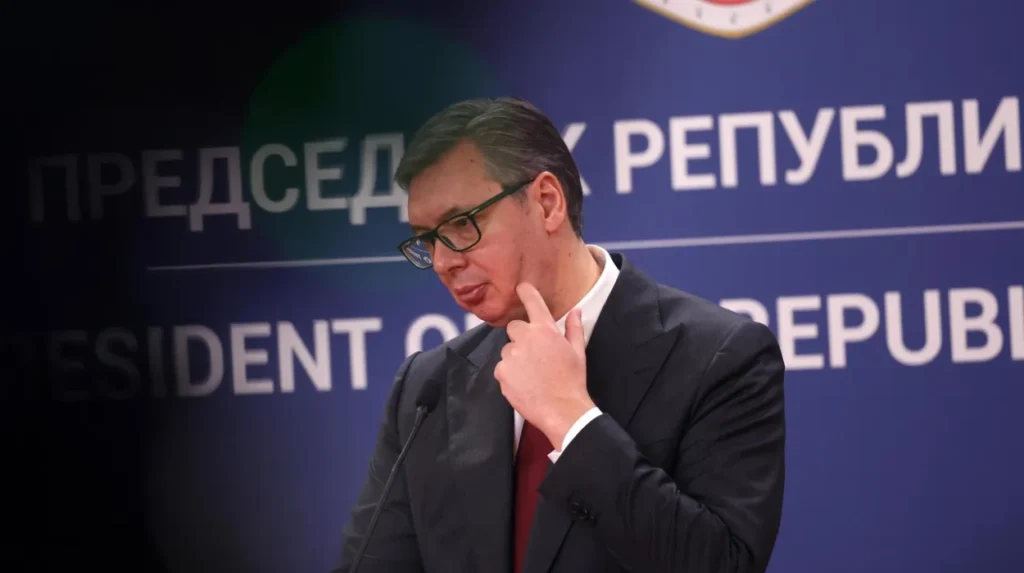The European Parliament is set to vote this week on a groundbreaking resolution condemning the increasingly repressive actions of Serbian President Aleksandar Vučić’s regime. This resolution highlights concerns over democratic backsliding, media freedom suppression, and human rights violations in Serbia, as tensions continue to rise in the Western Balkans. The move signals an assertive stance by the European Union’s (EU) legislative body toward influencing Serbia’s political trajectory ahead of its ongoing EU accession process.
Rising Tensions Over Democratic Governance in Serbia
In recent years, President Aleksandar Vučić’s government has faced mounting criticism from European lawmakers, civil society groups, and international watchdogs. Observers point to authoritarian tendencies manifested through control over the judiciary, intimidation of opposition parties, and diminishing space for independent media. The report accompanying the resolution details mounting evidence of state surveillance against activists, harassment of journalists, and electoral irregularities. These practices starkly contrast with the EU’s fundamental values of democracy, rule of law, and human rights protection.
Lawmakers in Brussels stress that the resolution is intended to reaffirm the EU’s commitment to democratic principles in its neighborhood.
“The European Parliament must stand firm against any attempt to undermine democratic institutions. Serbia’s citizens deserve transparency, fairness, and respect for their rights,”
said a leading Member of the European Parliament (MEP) involved in drafting the resolution.
Media Freedom and Human Rights Under Siege
The resolution particularly emphasizes the deteriorating conditions for press freedom in Serbia. Independent media outlets have reported increasing pressure from government officials, including the withdrawal of state advertising revenue critical for their survival. Journalists face both physical threats and legal challenges, fostering a climate of self-censorship. The EU delegation in Serbia has echoed these concerns, noting that a free press is indispensable for accountable governance.
Human rights activists emphasize that the crackdown extends beyond political dissenters to vulnerable groups such as ethnic minorities and LGBTQ+ communities. Instances of police brutality and discrimination have alarmed international human rights organizations.
“What we are witnessing in Serbia is a systematic erosion of rights that threatens the very fabric of democratic society,”
explained the director of a prominent European human rights NGO.
Balancing EU Enlargement and Democratic Standards
Serbia’s bid to join the EU has long been complicated by concerns over governance and the rule of law. While the EU remains committed to enlargement as a strategic objective for stability in the Balkans, conditions attached to membership now underscore tangible reforms. The resolution serves as a stern reminder that political reforms are non-negotiable prerequisites for further integration.
The European Parliament’s decision represents growing impatience with Serbia’s stalled progress on judicial independence and media pluralism. Previous EU statements called for reforms but lacked the force of a legislative resolution. This new document, expected to pass with broad support, signals a shift toward more stringent scrutiny.
Reaction from Serbian Authorities and Regional Impact
Serbian officials have described the resolution as an “unjustified intrusion” into domestic affairs. Vučić, asserting his mandate, dismissed critics as external forces intent on destabilizing the country. Government-controlled media have echoed this narrative, framing the resolution as politically motivated.
However, opposition leaders in Serbia welcomed the European Parliament’s stance, viewing it as validation of their long-standing accusations against the regime. A prominent opposition figure remarked,
“Finally, the EU is acknowledging the reality we face daily — repression and authoritarianism.”
The resolution’s implications extend beyond Serbia’s borders, potentially reshaping the EU’s engagement with the entire Western Balkans region. Given the strategic importance of the Balkans for European security and migration routes, the EU’s hardening line may influence other candidate countries’ reforms.
Statements from Key European Parliament Members
Several influential MEPs have voiced firm support for the resolution’s objectives. One stated,
“This is not an attack on Serbia but a defense of our shared European values. The path to Europe requires upholding democracy, not dismantling it.”
Another stressed the resolution’s dual purpose: advocating for the Serbian people’s rights while encouraging necessary reforms by the government.
The rapporteur for the resolution underscored the importance of measurable progress:
“Words are not enough. We need action from Belgrade that respects judicial independence, protects media freedoms, and guarantees human rights.”
This marks an explicit call for accountability tied to EU membership prospects.
Potential Political and Diplomatic Outcomes
Should the European Parliament adopt the resolution, which is highly anticipated, it may trigger intensified diplomatic pressure on Serbia from both the EU and its member states. The resolution could also inform EU funding allocations and technical assistance, potentially conditioning aid on improvements in governance standards.
Several EU capitals are already mulling coordinated responses to reinforce the Parliamentary message, including launching dialogue platforms involving civil society, media representatives, and government officials. There is also speculation that the resolution might set a precedent for similar actions toward other countries demonstrating authoritarian drift.
A Turning Point in EU-Serbia Relations
The upcoming vote in the European Parliament marks a crucial moment in the EU’s approach to Serbia’s democratic development. By explicitly condemning the repressive practices of Vučić’s regime, the EU sends a clear signal that accession candidates must uphold fundamental values sincerely and transparently. This resolution could serve as a catalyst for renewed reform efforts in Serbia and strengthen the EU’s credibility as a promoter of democracy in the Western Balkans.
The political dynamics in Serbia and Brussels will be closely monitored in the coming weeks, as the resolution’s adoption may redefine the terms of engagement and influence the broader trajectory of European integration in the region.







